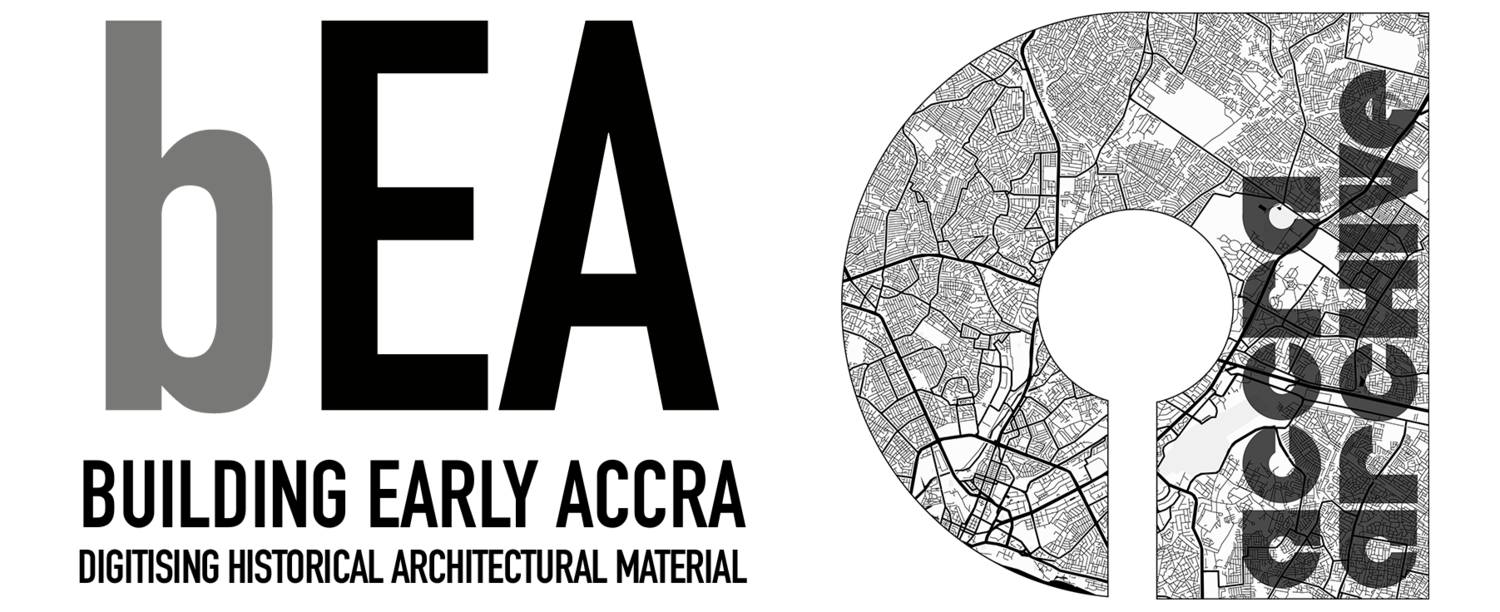What’s in a (Ga) Name?
Accra as an multiethnic community
By Lawrencia Amartey
How conversant are you with Ga names? I guess most readers would be as surprised as I was to discover that Brimah and Kamoko are not originally Ga names.
After reading an article by Gilbert Nii-Okai Addy, a writer and guitarist, about Adedainkpo (old Accra), I joined Accra Archive Fellow Akotowaa Ofori to interview him about Ga history, ethnicity, naming patterns and more. Adedainkpo in Accra is an old Ga community dating back to before the 1800s. Together with James Town, it is the place of origin of many people of the Ga ethnic group, which Gilbert and I belong to.
In this article, I look into the backgrounds, changes, corruptions and evolutions of some names associated with the Ga ethnic group of Accra. Some of the other sources I have used for this article are Kweku Darko Ankrah’s article on “A Look at the Ga Mantse and Gbese Stool Family Lines”, “Ga Naming Pattern” on Ghanaweb and “What You Didn't Know About Ga Names And Their Sabla” by Naa Oyoo Quartey;
Like other ethnic groups in Ghana, newborn Ga babies are given names with peculiar patterns and meanings, which may include the day of birth. However, unlike some other ethnic groups where babies are named mainly after their days of birth, the Ga child is born into some of their names. Before the birth of a Ga child, one of their names is known irrespective of the day of birth because the order of birth and settlement into which they were born forms part of the Ga naming system.
There are six significant settlements from which a Ga child could be born into. They are the Ga Mashie settlement (the oldest settlers); the Teshie settlement (known to be the last settlers); the Osu(Christiansburg), La(Labadi), Tema and Nungua settlements.
Below are some common Ga names and their origins and evolution over time.
Kojo/Kodwo
Kojo or Kodwo is the name of an Alata quarter stool holder of the Osu settlement. Although the Kojo name is not of a Ga descent, its founder Wetse Kojo was an enslaved person who became a wealthy trader. His hard work and good heart got him the opportunity of becoming an influential chief, and hence the name Kojo/ Kodwo became a Ga family name.
Nunu/Nunoo/Annum/Anum
The Nunu, Nunoo and Anum names can be traced to the Abola akutso of the Ga Mashie settlement, which can, in turn, be traced to the Abora Fantes. The Abora Fantes settled in Ga settlements from Moree, a Fante settlement.[[1]].
Ankrah
The name Ankrah is traced to the Otublohum family of Otoo street in what was then known as Dutch Accra. Originally this wasn’t a name belonging to the family. Names like Ayi, Ayitey, Okaile and Ayikaile are associated with the family name Ankrah. The Ga ethnic group is divided into settlements which are further divided into quarters which Ga people call akutso (singular) and akutsei (plural) [[2]]. The Ankrah family currently has its seat in the Gbese quarter of the Ga Mashie.
Apparently, the name Ankrah comes from Ayi. One story of the origin as cited on Ghanaweb claims that “a member of the family was named wankara; abbreviated to ankra, because “the fellow never bids goodbye or gives notice when leaving” and this is why his “twi-speaking neighbours” tagged him “with the phrase wan kra /ankra” (did not bid farewell) which over time become the adopted name” of that family [[3]].
Ama
Ama comes from the Asere quarters of Ga Mashie. Apparently, this family were smiths by trade and had an excellent reputation. They were also the guards of the occupants of the Asere stool. “The family name of this people starts with a man and his wife; with the Ama or Amarh line. Therefore, names like Ama, Amate, Amakai, Amatei, Amalai, Amakwei, Amalei, Boi, Laryea are male names and Amele, Ahine, Amokor, Amateokor, Amakai, Amatekai, Amatso, Amatetso are female names associated with the Ama/ Amarh family name” [[4]].
Kpakpa/ Kwate
Kpakpatsewe is the original name of this family. Like most other names, the Kpakpa name is a borrowed name from papa, an Akan word for “good and strong”. Therefore, anyone with the name Quartey- Papafio is of a similar clan as the one with the name Kwate- Kpakpafio [[5]].
Amu Dako (Darko)
The Amu Dako names are of the Otublohum quarter of Ga Mashie. Other related names are Daku (Darko), Ankrah, Dodoo, Nsaki (Sakyi/Sackey), which are borrowed from Twi phrases of the Akwamu origin [6].
Looking at the above names, it is easy to deduce that almost all Ga families have some form of changed or corrupted names which is now the dominant or most common name. Some of these changes came about by their interactions with other ethnic groups, such as the Akans, whereas others came through commerce. In the old bygone era, it was said that a Ga man would die for his name [[6]], but presently, it looks as though newer Ga generations have forgotten the houses that bore and bred their forefathers.
As Gas, we should not forget the origins and meanings of our names and the names of our ancestors.
REFERENCES
[1] K.D. Ankrah,2016, https://blakkpepper.com/2016/12/a-look-at-the-ga-mantse-gbese-stool-family-lines/
[2]N.O.Quartey,2003,https://www.naaoyooquartey.com/ganyobinaa/2013/09/what-you-didnt-know-about-ga-names-and.html
[3] Ga naming system, ghanaweb,2021, https://www.ghanaweb.com/GhanaHomePage/tribes/ga_names.php
[4] Ga naming system, ghanaweb,2021, https://www.ghanaweb.com/GhanaHomePage/tribes/ga_names.php
[5] K.D. Ankrah,2016, https://blakkpepper.com/2016/12/a-look-at-the-ga-mantse-gbese-stool-family-lines/
[6] Ghanaweb,2021, https://www.ghanaweb.com/GhanaHomePage/tribes/ga_names.php
